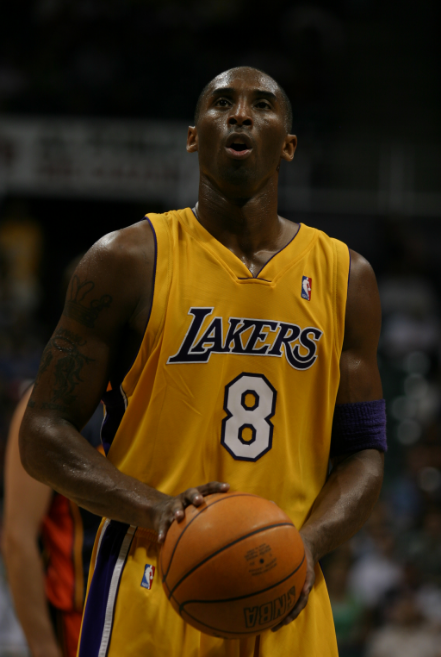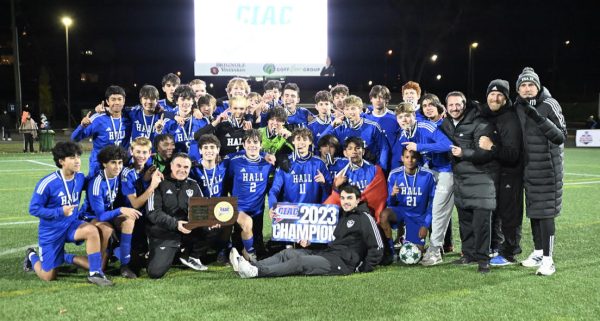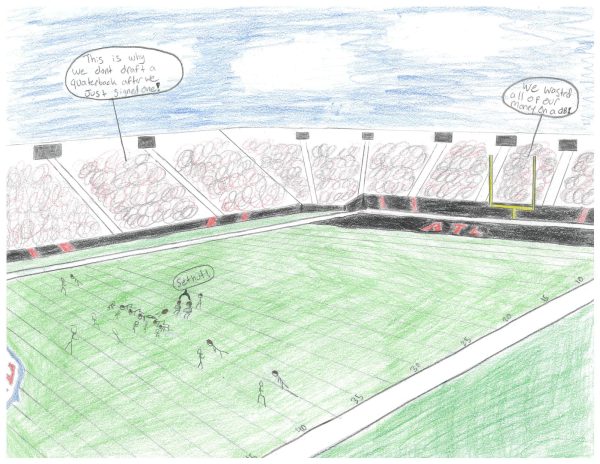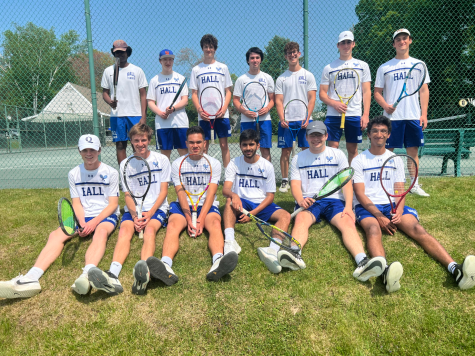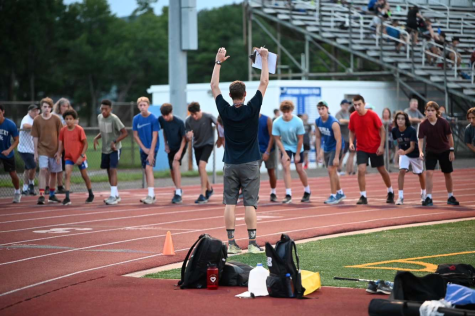The Mamba Mentality
The human brain is an immaculate hunk of cells and mitochondria that rests in the cranium of our skull. It is capable of doing almost anything. Think about it, you’re using your brain to think about your brain thinking about using your brain to think about- and you get the point.
Now take this magnificent piece of atoms, synapses, cerebrospinal fluid and place it into the noggin’ of a world class athlete. At the peak of mankind’s physical limitations, what separates the best from the rest? How do athletes at the highest caliber of athletics find advantages? How do they excel at even the most somber moments in their personal lives? The answer is: mentality.
What makes an athlete successful is not how big they are or how fast, but the mindset that makes them great. When asked about challenges they faced, many Hall athletes had important ways to get over them. Thomas Zinzarella, a Hall golfer, told us, “All it takes is one good shot, one good hole” to get back in it. This mindset is what makes many athletes at Hall successful.
Andrew Cravedi, a Hall lacrosse and football player, told us, “There were a few games we were down in football and lacrosse, but when you’re down, you just gotta play your heart out and believe.” Believing in yourself and your team is not easy and it’s the thing that separates the winners from the losers. Varsity players at Hall have taken years to master their mindset and it wasn’t always the same. Over their time they have created ways to cope with struggles in game and one of those is swearing. Swearing has been linked to sports since the beginning of the game and Hall athletes agree. Caroline Turner, a Hall swimmer, told us that swearing “Shows a lot of passion for the game”. Passion for the game is the mindset in which many athletes must have to succeed in both sports and life.
During sporting events, athletes must find their own distractions to interfere with pain. In a study at the University of Singapore, people who “vocalized” (that is, said, “Ow!”) were able to withstand pain for 30 seconds, about five seconds longer than those who kept their lips zipped. When you’re in game, there is nothing more you want than to win. The emotions take over your body, and when something goes wrong, all you want to do is scream. Especially when you’re injured, you don’t want to believe it’s true, so you scream even more. “The muscle movements required to cry out or grunt may actually interfere with the pain messages being sent to the brain, distracting you from the discomfort,” explains researcher Annett Schirmer, Ph.D. Sometimes it feels good to scream when you need it. Whether it be an audible gasp, or some variation of a swear. All athletes have a different mindset on how to deal with setbacks during games.
Isaiah Thomas is an American professional basketball for the Boston Celtics. The 5-foot-9-inch point guard played 3 years of college ball with the Washington Huskies before getting drafted by the Sacramento Kings in the last pick of the 2011 NBA draft. Last month, on the eve of the NBA playoffs, Thomas’ younger sister Chyna Thomas was killed in a single-vehicle accident near their native Tacoma, Washington. This really hit Thomas hard: “When I found out the news, I wanted to give up and quit. Never in my life have I thought about quitting,” Thomas told the family and friends who gathered to celebrate the life of his sister. Celtic’s head coach, Brad Stevens, told Isaiah that he didn’t need to return for game one of the Eastern Conference Semifinals against the Washington Wizards. Despite all the hardships, Isaiah showed up and scored 33 points with 9 assists, helping the Celtics beat the Wizards. Thomas didn’t let his emotions overcome him. At the age of 28, Thomas continues to amaze the world as he pushes on to the Eastern Conference Finals.
Kobe Bryant is a world renowned basketball player with numerous awards and accolades. Even with his consistent years of triumph and success, there were times in his career where he, toom, had a long and strenuous recovery to get back to peak performance. None were more impactful than his first injury, the complete rupture of his left achilles tendon. “The Achilles tendon, or calcaneal tendon, mainly connects the calf muscles—gastrocnemius and soleus—to the calcaneus, or heel bone. It is the strongest and thickest tendon in the human body,” explains Daniel Lewis in his Bleacher Report Article. Blowing out an achilles is a considerable setback in any professional athlete’s career. It often causes many young players to never reach their full potential, or causes more seasoned veterans to retire early, but not Kobe Bryant. He, at the young age of 36, had “The Mamba Mentality.” The moniker coming from the deadly Black Mamba found in sub-Saharan Africa. This state of mind is what pushed him to take those two free throws right after he tore his achilles. This state of mind is what made he determined to push through the long and strenuous recovery period. This state of mind is what caused him to finally return back to the court. Physical limitations and setbacks are of no match to the capabilities to the human brain.
Mentality is of the utmost importance to any professional athlete. This state of mind is what causes them to push the envelope on what is and isn’t possible. Whether it be Isiah Thomas, Kobe Bryant, or you and me, anything is possible when you truly envision yourself accomplishing it.

